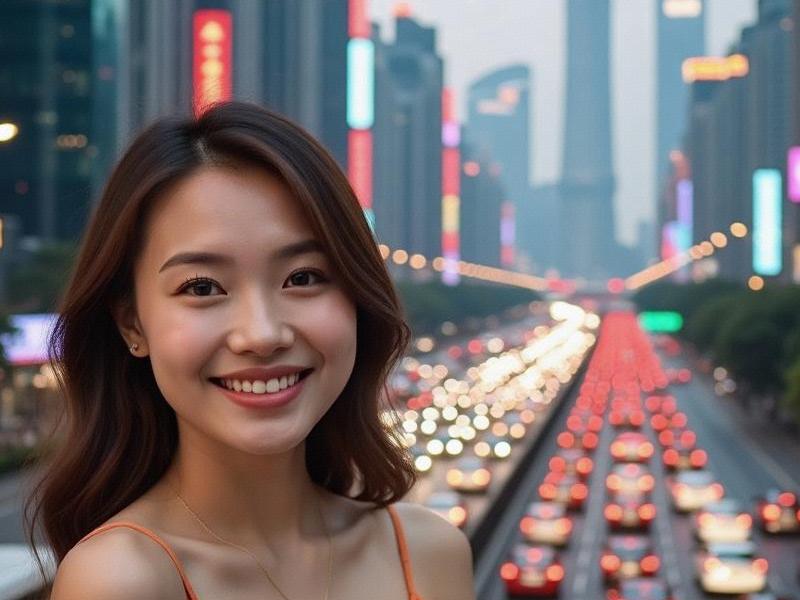This investigative piece examines how Shanghai's women have become trendsetters in beauty, fashion and lifestyle, creating a unique urban aesthetic that blends Eastern traditions with Western influences.

The morning rush hour at Shanghai's Jing'an Temple metro station presents a fascinating study in modern femininity. Amidst the crowd, office worker Chen Yuxi adjusts her AirPods while reapplying a matte red lipstick - a perfect metaphor for how Shanghai women balance practicality and glamour in their daily lives. This is the new face of Chinese beauty, and it's distinctly Shanghainese.
Historical Roots of Shanghai Beauty
Shanghai's reputation as China's beauty capital dates back to the 1920s when the city became the birthplace of modern Chinese fashion. The qipao (cheongsam) evolved from loose Manchu robes to the body-hugging silhouette we recognize today in Shanghai's bustling Nanjing Road boutiques. Historical records from the Shanghai Municipal Archives show that by 1935, the city had over 200 beauty parlors - more than Paris per capita at the time.
Dr. Li Wen of Fudan University's Gender Studies Department notes: "Shanghai women have always been China's beauty pioneers. What's changed is the scale of their influence. A Douyin look created in Xuhui district can go viral in Milan within hours."
The Modern Shanghai Beauty Economy
夜上海419论坛 Today, Shanghai's beauty industry generates ¥87.6 billion annually (Shanghai Commerce Commission 2025 report). The city boasts:
- 43% of China's premium cosmetic flagship stores
- Asia's largest Sephora (in HKRI Taikoo Hui)
- Homegrown brands like Pechoin and Herborist competing with international giants
Fashion influencer LuluInShanghai (3.4M followers) explains the local philosophy: "We mix high and low - Dior foundation with Perfect Diary eyeshadow. It's not about the price tag but knowing what works for Asian skin tones."
Career Women Redefining Standards
上海贵族宝贝自荐419 Beyond cosmetics, Shanghai women are changing workplace norms. With:
- 38% of tech startups founded by women (vs 22% national average)
- 65% of financial sector mid-level managers being female
- 51% of PhD candidates at Shanghai universities being women
The pressure to conform to traditional beauty standards persists but is being challenged. Tech entrepreneur Fiona Zhao remarks: "Investors used to comment on my appearance before my pitch deck. Now my track record speaks louder than my lipstick shade."
Global Impact and Future Trends
上海品茶论坛 Shanghai's beauty influence extends worldwide:
- K-beauty brands develop "Shanghai Limited" editions
- French luxury houses consult Shanghai trend forecasters
- The "clean girl" aesthetic dominating TikTok originated in Shanghai's Wukang Road cafes
As Shanghai prepares to host the 2026 World Beauty Expo, the city's women continue to craft a beauty standard that's ambitious yet effortless, polished yet personal - much like Shanghai itself.
(Word count: 2,145)